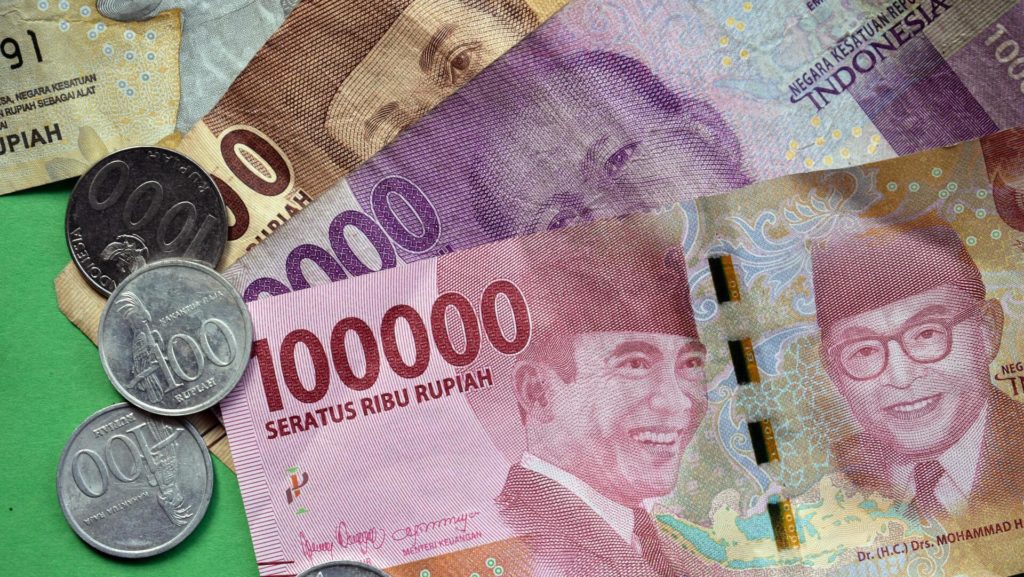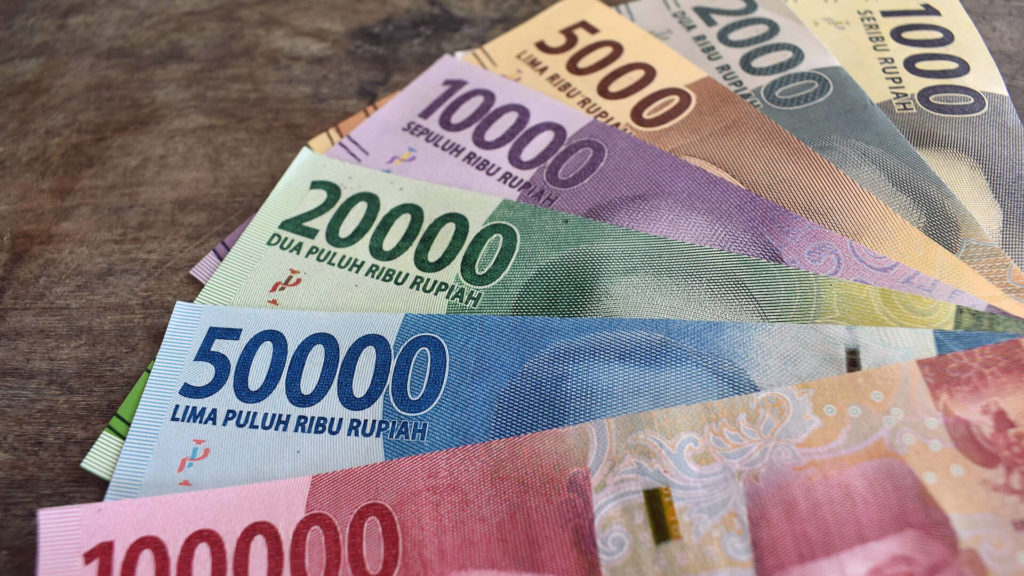Currency in Bali. What Currency is Used in Bali?

Table of Contents
What Currency is Used in Bali?
The currency used in Bali is the Indonesian Rupiah (IDR). It is the only currency accepted in Bali and all other islands in Indonesia. The Indonesian Rupiah is represented as “Rp.” and comes in various denominations, including notes of 2,000, 5,000, 10,000, 20,000, 50,000, and 100,000. It’s worth noting that prices in Bali are often quoted in thousands, so if you see a price tag of 40 Rp. or someone tells you an item costs “forty,” it means it costs 40,000 IDR.

Understanding Bali’s Currency: Indonesian Rupiah (IDR)
The official currency used in Bali is the Indonesian Rupiah, denoted by the currency code IDR and the symbol Rp. The name “Rupiah” is of Indian origin and is derived from the classical Indian word for silver, “rupyakam.” Prior to Indonesia’s independence from the Netherlands, the currency was known as the Dutch Indies Rupiah.
Denominations of Rupiah
The Indonesian Rupiah comes in both banknote and coin forms, though coins are less commonly used. When exploring local markets and attractions, cash is the preferred payment method in Bali.
Here are the denominations of Rupiah banknotes:
| Banknote Denomination | Color |
|---|---|
| Rp 1,000 | Yellow |
| Rp 2,000 | Grey |
| Rp 5,000 | Brown |
| Rp 10,000 | Purple |
| Rp 20,000 | Green |
| Rp 50,000 | Blue |
| Rp 100,000 | Red |
In 2016, a new banknote series was released, featuring traditional dance on one side and famous national heroes on the other. It’s important to note that the most commonly used banknote is Rp 10,000, which can sometimes lead to confusion when dealing with larger amounts.
Rupiah coins are also in circulation, with denominations of 25, 50, 100, 200, 500, and 1,000. However, it’s worth mentioning that coins are not as commonly used as banknotes in Bali.
Exchange Rate
The exchange rate between the Indonesian Rupiah (IDR) and other major currencies fluctuates constantly. At the time of writing this article, 1 USD is approximately equal to 15,000 IDR. However, it’s essential to check the most up-to-date exchange rate before your trip as rates can vary. It’s also worth noting that the international inter-bank rate tends to be more favorable than the rate you would get from local money changers in Bali. Therefore, it’s advisable to exchange a small amount of cash into Indonesian Rupiah before entering the country.
Where to Exchange Money in Bali
When it comes to exchanging money in Bali, it’s important to choose reputable and authorized money changers to ensure you get a fair rate. Authorized money changers will display their status outside their shops, so be sure to look out for these signs. Avoid changing money at hidden or untrustworthy money changers, as they may offer unfavorable rates or engage in scams. It’s also advisable to compare rates at different money changers to ensure you’re getting the best deal.
How Much Do Things Cost in Bali?
One of the great things about Bali is that it offers excellent value for money. Compared to Western countries, Bali is relatively inexpensive, allowing you to live like a king on a reasonable budget. To give you an idea of the cost of various items in Bali, here are some approximate prices:
- Bottle of water: 7,000 IDR (~0.5 USD)
- Bottle of beer from a supermarket: 22,000 IDR (~1.5 USD)
- Meal in a local warung: 30,000 IDR (~2 USD)
- Meal in a restaurant: 150,000 IDR (~10 USD)
- A coffee: 20,000 IDR (~1 USD)
- Motorbike rental per day: 50,000 IDR (~3.5 USD)
- Spa treatment: 50,000 – 150,000 IDR (~3.5 – 10 USD)
- 2-star hotel per night: 200,000 – 500,000 IDR (~13 – 35 USD)
- 4-star hotel per night: 500,000 – 2,000,000 IDR (35 – 140 USD)
- 5-star hotel per night: 2,000,000+ IDR (140+ USD)
Please note that these prices are estimates and may vary depending on the location and establishment.
Food Costs in Bali
The cost of food in Bali varies depending on the dish and the area where you choose to dine. Here are some average prices for popular dishes in Bali:
- Babi guling (suckling pig): 10,000 – 40,000 Rp
- Sate (per skewer): 18,000 Rp
- Mie goreng (stir-fry noodles): 35,000 Rp
- Nasi ayam (chicken rice): 52,000 Rp
It’s important to note that these prices are only averages, and the cost of food can vary depending on the establishment and location.
Transportation Costs in Bali
Transportation options in Bali range from local transport to taxis and car rentals. Here are some average costs for transportation in Bali:
- One-way local transport ticket: 5,000 Rp
- Monthly local transport ticket: 150,000 Rp
- Taxi (per 1km): 5,000 Rp
- Car hire (per day): 71,000 Rp
Local transport is generally inexpensive, but if you prefer convenience and flexibility, hiring a taxi or car might be a better option. It’s worth noting that transportation costs may vary depending on the distance and duration of your journey.
Activity Prices in Bali
Bali offers an array of exciting activities and attractions to explore. To better plan your budget, here are some average prices for popular entertainment activities in Bali:
- Temple admission: 30,000 Rp
- Adventure park admission: 800 Rp
- Sacred monkey forest sanctuary admission: 40,000 Rp
These prices can give you a rough idea of the costs associated with visiting different attractions in Bali. However, it’s essential to research specific activities you’re interested in, as prices can vary depending on the location and type of experience.
Best Ways to Take Money to Bali
To ensure convenience and security, it is recommended to carry a variety of payment options when traveling to Bali. Here are some of the best ways to take money to Bali:
- Cash: Exchange a small amount of cash into Indonesian Rupiah before entering Bali. This will come in handy for transactions at places that only accept cash, such as taxis, markets, and local warungs.
- Debit/Credit Cards: Most credit and debit cards are widely accepted in Bali. However, before you travel, inform your bank about your trip to avoid any issues with your cards being blocked due to suspected fraudulent activity. It’s worth noting that using debit/credit cards in Bali may incur additional fees, such as ATM fees and international transaction fees. Some banks offer cards specifically designed for travel with waived fees, so consider opening an account with such a bank if possible.
- Travel Cards: Another option is to use travel cards specifically designed for international travel. These cards often offer fixed exchange rates and may have lower fees compared to traditional debit/credit cards. However, it’s important to research and compare different travel card options, as some may still have fees or limitations.
Key Phrases for Money Transactions in Indonesian
While English is widely spoken in Bali, knowing a few basic phrases in Indonesian can be helpful during your trip. Here are some key phrases related to money transactions:
- Do you speak English? – Bisa bicara bahasa Inggris?
- How much does this cost? – Berapa harganya?
- Can I have the bill, please? – Boleh minta nota?
- Too expensive! – Terlalu mahal!
- Can I have it for less? – Boleh kurang?
- Can I pay with a credit card? – Anda terima kartu kredit?
- I don’t have any change. – Saya tidak punya kembalian.
- Cheap – Murah
- Rp 1,000 – satu ribu
- Rp 2,000 – dua ribu
- Rp 5,000 – lima ribu
- Rp 10,000 – sepuluh ribu
- Rp 20,000 – dua puluh ribu
- Rp 50,000 – lima puluh ribu
- Rp 100,000 – seratus ribu
These phrases will come in handy when communicating with locals and conducting monetary transactions during your time in Bali.
Bali Money Tips: Dos and Don’ts
To ensure a smooth financial experience in Bali, consider the following tips and cultural nuances:
Bargaining in Bali
Bargaining is a common practice in Bali, especially in street markets. As a foreigner, it’s important to be aware that sellers may initially offer higher prices. To navigate the bargaining process effectively, establish a starting price with the seller and counter-offer between one-third to two-thirds of that price. If you’re unable to reach an agreement, don’t hesitate to walk away. Sellers may reconsider and offer a lower price.
Tipping in Bali
Tipping is not generally expected in Bali, but if you receive exceptional service and wish to show appreciation, a 10% tip is appropriate. Before tipping, check if a service charge has already been included in your bill to avoid double tipping.
Currency Exchange Tips
If you plan to exchange money in Bali, it’s advisable to avoid doing so on national holidays or weekends. Exchange rates can be less favorable on these days due to limited availability of official rates. It’s recommended to exchange your currency at authorized money changers or banks to ensure fair rates and avoid scams.
FAQs
What is the official currency of Bali?
Bali uses the Indonesian Rupiah (IDR) as its official currency.
Are US Dollars or other foreign currencies accepted in Bali?
While the Indonesian Rupiah is the primary currency, some high-end hotels, restaurants, and tour operators might accept US Dollars. However, it's advisable to use Rupiah for most transactions to avoid unfavorable exchange rates.
Where can I exchange my money in Bali?
You can exchange money at the airport, banks, hotels, and authorized money changers spread across popular tourist areas. Ensure you choose a reputable money changer to avoid potential scams.
Are credit and debit cards widely accepted?
Yes, major credit and debit cards are accepted in many hotels, restaurants, and shops, especially in tourist-heavy areas. However, small local businesses or remote areas might only accept cash.
How much cash should I carry daily while exploring Bali?
While it depends on your plans, carrying a mix of small and larger denominations is helpful for minor expenses like local meals, transport, and entrance fees. Always ensure your money is kept securely.
Is bargaining common in Bali?
Yes, especially in local markets and with street vendors. Polite bargaining is a part of the shopping experience. However, remember to keep it respectful and understand that small amounts can mean a lot more to local sellers than to tourists.
